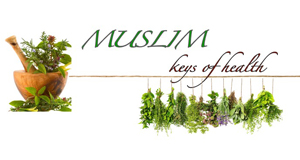ROSEMARY
Rosemary is an herb that can also be boiled with water to make a relaxing and aromatic herbal tea. Research suggests that rosemary boosts brain function by improving memory in all age groups. A recent study suggested that an antioxidant found in rosemary leaves has the potential to be used as a pharmaceutical agent against Alzheimer’s disease.
BENEFITS OF ROSEMARY
Some of the benefits of rosemary include:
- Digestive aid
- Increase cognitive function
- Prevents cancer
- Treats skin conditions like eczema and psoriasis
- Anti-inflammatory
- Pain reliever
- Reduces anxiety
- Improves liver function
- Boosts hair and skin health
HOW TO BREW A PERFECT CUP OF ROSEMARY TEA
Rosemary tea is made by brewing the stem and leaves of the herb. Both dried or fresh herb can be used to make the tea.
Ingredients
- 1 teaspoon of rosemary (fresh, dried, or powdered)
- 1 cup of water
Method
- Boil the water until it reaches a temperature of 75-85 C / 170-185 degrees F.
- Add the leaves.
- Let the mix steep for approximately five to eight minutes; or longer if you prefer strong flavor.
- Strain and transfer the tea to a cup.
- Add sweetener if desired.
- Enjoy!
SIDE EFFECTS
The side effects of rosemary tea include strong allergic reactions, gastrointestinal distress, uterine contractions, skin redness, bleeding disorders and even seizures. This is due to the powerful essential found in this herb, which can be irritating to the body when consumed in large amounts.
*This tea, like any other herb, should be taken under the supervision of your natural health care provider.
Rosemary tea is not recommended to take if you have any of the following conditions:
- Aspirin Allergy – One of the chemicals found in rosemary tea, salicylate, is very similar to aspirin, and if you are allergic to aspirin, your body may respond in a similar way.
- Bleeding – If you suffer from a bleeding disorder, the anticoagulant nature of this herbal tea may make your condition worse. It can also cause bruising and tenderness of certain tissues in those with certain afflictions.
- Breastfeeding – mothers should avoid this tea, as some of the volatile ingredients in this herb can be passed through breast milk to the infant.
- Pregnancy – Some of the compounds found in rosemary tea may stimulate menstruation, which is dangerous during pregnancy, particularly in the first two trimesters, as it can result in miscarriages, uterine bleeding or premature labor.
- Seizures – For those who have known seizure disorders, some of the active ingredients within rosemary tea may aggravate these conditions.
- Stomach Issues – Some of the most common side effects of drinking rosemary tea include nausea, vomiting, inflammation of the gut, and hemorrhoid bleeding. This is typically only seen when large amounts of rosemary are consumed, not the relatively small amount used in the brewing of this tea.

